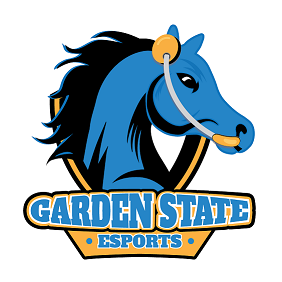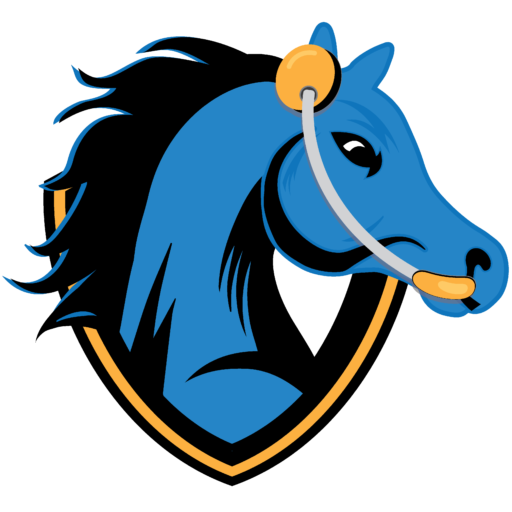
Scholastic Esports: A Reflection from a Princeton-Bound Senior
As I write this, my four-year journey with high school esports has just come to an end. I have just had my last dinner with the team, handed out varsity letters, and handed over team captaincy to a junior whom I have great hopes for. The week before, I graduated from high school, marking the end of a chapter in my education. My name is Ryan Divan, a graduated senior from Saint Peter’s Preparatory School and an incoming freshman at Princeton University, but, more pertinently, an alumnus of Garden State Esports and the former president of the Saint Peter’s Prep Esports Team. My experiences with esports and education are closely intertwined, and I hope to convey aspects of my journey that show how valuable an encounter with esports can be, especially for high school students.
My Introduction to Esports
My path in esports started during my freshman year of high school, amid the COVID-19 pandemic. Just as many others, I found myself with hours of free time and not enough to do with it. Alongside my studies, I found a new interest: Rocket League, a vehicular soccer game that, to date, I’ve invested over 3,000 hours into. Over my freshman year, I ascended the ranks, from Silver to Grand Champion; I was overjoyed with my progression in my new hobby. However, a hobby was all I thought it would be, until I heard of a showmatch between my school and Summit High School. It was a nail-biter, with my school winning in a thrilling five-game series, and that inspired me—if these students could make video games a part of their school experience and benefit from it, I should take my hobby to the next level through esports.
I took up presidency of the club at the end of my freshman year and proceeded to register in established competitions. The club began through our League of Legends team winning a few smaller tournaments. Then, we started competing through HSEL in several games, but eventually moved to GSE so we could play games on LAN against schools that we knew. I coordinate multiple teams each season, and this most recent Spring Season was our strongest yet, with our Rocket League team making the semifinals and our Valorant team earning a strongly positive record and making the playoffs for the first time. Our team has grown immensely since 2020, with increased funding and varsity letter eligibility, and I am proud of the strong placements we have earned. Through these years and games, my players and I have gained far more than in-game skills—all of us have changed for the better, both as students and players.
Learning to be a Leader
Presiding over the esports club at my school was my first foray into leadership in high school, and I can unequivocally say that it was an effective experience. Pioneering esports at my school showed me how to rally my peers behind a common interest and unite a group to turn a spark of interest into a monumental initiative. Esports morphed me from an introverted and reserved freshman into a speaker who would present plans for expansion in a room of over one hundred eager students. Both parents and administrators must understand this aspect of esports; it is more than just competition, but a test of leadership. Just playing video games is one thing, but rallying your peers to compete against teams from around the state? That requires a level of leadership and dedication that is valuable to cultivate. I have seen my captains and players become more confident through leading others in something that they love, fueled by passion and a competitive spirit. Some people may think they are not cut out to be leaders, but I would say that they have just not found the right area for them to lead. Esports is an area of sports where schools can support a whole new wave of leaders; it worked for me and several others in GSE, and with more widespread support, I see the possibility of cultivating even more talent.
Taking Initiative
As a relatively newer endeavor, students may find it more difficult to immediately participate in esports as opposed to other extracurricular activities, but that is an aspect on which students can capitalize. As an ardent gamer, I ran into some difficulties starting esports at my school, but leaning into that discomfort showed me how to take initiative for things that I loved. Passion is the most important ingredient for success, and to put it simply, esports is something that several students are passionate about. Here, novelty is a good thing; allowing students to mold their experience with esports adds an aspect that traditional sports lack. If there is any competition where teenagers can take the reins to organize and compete in, it would be esports, and that level of autonomy and administration can help shape several parts of their lives. I, alongside several others with whom I worked on our esports team, went on to take more risks and pursue our passions in other extracurricular endeavors in ways that we might not have had we not tried organizing esports competitions. Though scholastic esports is a relatively recent wave, an investment in it can mold generations of students to come.
A Place for Everyone
One of the most crucial aspects of esports, in my opinion, is its capability to include any interested student. Varsity athletics may require a specific set of skills, and competitive teams like debate can be somewhat daunting for beginners, esports teams offer an environment that I have found to be uniquely inclusive. At my school, our esports team has included students from all backgrounds; from hardcore gamers to varsity athletes in other sports, from academically-driven students to more extracurricular-oriented ones, and from some of the most popular students at school to those who keep to themselves, esports produces an interesting confluence of students that helps enrich the community. There are several students with whom I would never have spoken otherwise, but through a shared connection of esports, they are some of my closest friends. Esports is an untapped avenue for interpersonal connection that enables a diverse environment; the more students who can access such a community, the better!
Succeeding as a Player and a Student
Video games and school can often seem in conflict, as several people, myself included, may choose to play a few rounds of their title of choice instead of putting schoolwork as their priority. However, what I have observed over these past few years is that giving esports the legitimacy of any other sport serves as an incentive for excelling academically. Minimum grade requirements for varsity letters and participation push players to be their best selves both on and off the game, and adding motivation to coming to school means that players can develop into far more enthusiastic students. This can apply to students of all kinds, even those with the highest aspirations; although anecdotal evidence, of the top ten students my GPA in my school’s most recent graduating class, six of them have been involved in esports at some point in their high school career, with four of them making it a focal point of their college applications. An extracurricular focus such as esports can make even the best students better, and the best way for schools to support their students is to provide more opportunities such as these to support growth outside of the classroom to enable development within it. Through GSE, I have grown both in my esports and educational careers, and I avow that countless more students can similarly benefit—they just don’t know it yet.
Concluding Remarks
As I say goodbye to my experience with high school esports, I feel bittersweet; I am leaving behind a passion I have built for four years, but I am moving on to new horizons where I can continue to build it up even more. Esports was a hallmark of my high school experience, and I do not doubt that several of my peers and competitors would say the same. I hope that my experience can encourage you as a student to take a chance on esports, as a parent to support a child’s ambition to compete in games that they love, or as an administrator to provide the infrastructure to let hundreds of students discover leadership, initiative, and a new sense of community. High school esports is more than just games; it is a community and a family to which I am proud to belong.
Ryan Divan
GSE Alumni
Princeton Class of 2028
